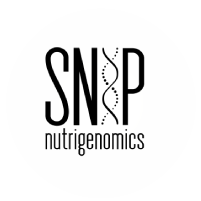Understanding your methylation capacity and selecting the appropriate form of folate supplementation is crucial due to genetic variations that can impact folate metabolism, particularly in those with variants in the MTHFR gene.
MTHFR – Importance of Methylation Capacity
Methylation is a biochemical process essential for many bodily functions, including DNA repair, gene expression, and neurotransmitter synthesis. The MTHFR gene produces an enzyme needed for converting folate into its active form, methylfolate. Gene variations, such as C677T or A1298C, can reduce the enzyme’s efficiency, lowering methylfolate levels. This affects processes like homocysteine breakdown, which, is critical for heart and overall health.
Expanding on AHCY, CBS, and NQO1 Genes
- AHCY (Adenosylhomocysteinase): This gene is responsible for converting S-adenosylhomocysteine to homocysteine, a step crucial for maintaining the methylation cycle’s balance. Mutations here may impact homocysteine levels, which are linked to cardiovascular health. Effective folate intake (preferably as 5-MTHF) can help balance this cycle by converting homocysteine back to methionine.
- CBS (Cystathionine-beta-synthase): Mutations in the CBS gene can lead to altered homocysteine and cysteine metabolism, sometimes managed with dietary modifications that include increased folate intake. Understanding these mutations helps tailor dietary recommendations that include appropriate folate forms to manage homocysteine levels.
- NQO1 (NAD(P)H Quinone Dehydrogenase 1): This gene plays a role in detoxification processes by reducing quinones to hydroquinones. Variations in this gene can affect cellular stress responses and antioxidant capacities. Folate, particularly in its active form, supports cellular antioxidant systems, suggesting a link between folate metabolism and NQO1 function.
Practical Recommendations
For those with genetic variants affecting these enzymes (MTHFR, AHCY, CBS, NQO1), using the already active form of folate, such as 5-MTHF, is generally more beneficial. At SNiP, we have chosen to utilize Quatrefolic® because it provides a form of folate that bypasses the need for enzymatic conversion due to these genetic variations. Dosages should be personalized based on genetic testing and under the guidance of a healthcare professional experienced in genetic and micronutrient assessments to address specific needs and optimize health outcomes.
Types of Folate and Recommendations
- Folic Acid: Folic acid, a synthetic form used in many supplements and fortified foods, requires conversion in the body and may not be processed as efficiently by individuals with certain genetic variations which may interfere with the absorption and utilization of more bioavailable forms of folate. This competition at the cellular level can be particularly problematic for individuals with MTHFR mutations, as it can hamper their ability to process folate efficiently. Avoiding folic acid in dietary supplements and fortified food products for those affected by such genetic variations can be more beneficial. Instead, opting for natural dietary sources of folate or supplements containing folinic acid or methylfolate (5-MTHF) is recommended, as these forms do not compete negatively with the body’s folate pathways and provide direct, usable folate that supports proper cellular functions.
- Dietary Folate: Found in foods like leafy greens, legumes, and some fruits. It is naturally more compatible with the body’s processes but may still require conversion to be used effectively, which can be problematic for those with MTHFR mutations.
- Folinic Acid: This non-methylated form of folate does not require the MTHFR enzyme to convert, making it a better option for individuals with MTHFR mutations as it bypasses the problematic step.
- Methylfolate (5-MTHF): This is the bioactive form of folate, ready for use by the body without needing conversion. It’s particularly recommended for those with significant MTHFR mutations, as it directly provides the body with the form of folate it can immediately utilize.
- Here at SNiP, we have chosen the next level form of folic acid:
- Quatrefolic® is a biologically active form of folate, specifically (6S)-5-methyltetrahydrofolate, which bypasses the need for conversion by the MTHFR enzyme.
- Quatrefolic® is better absorbed in the small intestine and avoids the potential accumulation of unmetabolized folic acid (UMFA) in the blood.
- Quatrefolic® is especially beneficial for individuals with MTHFR gene polymorphisms who have difficulty converting folic acid to its active form
Dosage and Why Take It
- Age: The recommended amount of daily vitamin B12 varies with age.
- General Population: The recommended dose for preventing neural tube defects is at least 400 mcg of folinic acid per day, which can go up to 600 mcg during pregnancy.
- Individuals with MTHFR Mutations: The dosage can vary widely, usually between 400 mcg and 1 mg of methylfolate, depending on the severity of the mutation and individual health conditions.
Health Benefits
- Reduced Homocysteine Levels: Folate supplementation may help maintain healthy homocysteine levels, which is important for cardiovascular health.
- DNA Synthesis and Repair: Adequate folate is crucial for DNA synthesis and repair, as well as cell division and overall health.
- Pregnancy: Ensures proper fetal development and reduces the risk of neural tube defects like spina bifida.
- Mental Health: Supports the synthesis of neurotransmitters, contributing to mood regulation and cognitive function.
Because individual genetic makeup significantly influences how folate is processed in the body, those with MTHFR mutations should consider more readily usable forms of folate, like folinic acid or methylfolate. To best understand and manage your specific needs related to folate supplementation, especially if genetic variations impact folate metabolism, consider testing your genes with SNiP Nutrigenomics.
By identifying your unique genetic profile, including potential variants in the MTHFR, AHCY, CBS, and NQO1 genes, SNiP Nutrigenomics can provide a customized supplement plan, tailored to the milligram.
This ensures you receive the precise form and amount of folate necessary for optimal health.
Why Testing Your Genes is Crucial:
- Personalized Supplement Strategy: Knowing your genetic makeup helps in choosing the right form of folate—whether it’s folic acid, dietary folate, folinic acid, or methylfolate (5-MTHF)—and the correct dosage to effectively support your body’s needs.
- Optimized Methylation Process: Methylation is a critical biochemical pathway involved in numerous bodily functions such as DNA repair and neurotransmitter synthesis. Effective methylation depends heavily on the active form of folate, which can be compromised by genetic variations in the MTHFR gene.
- Mind-Body Wellness: Tailored folate supplementation based on your genetic makeup may help support healthy homocysteine levels, DNA synthesis and repair, and mental health by supporting neurotransmitter synthesis.
There is only one you, so don’t let generic solutions dictate your health strategy. Visit SNiP Nutrigenomics today to explore your genetic predispositions and receive a personalized, scientifically-driven folate supplementation plan.
Based on your unique genetic profile, ensure your body gets what it needs to function at its best.
Discover today why biohackers, athletes and leading wellness professionals choose SNiP DNA-tailored nutrition over off-the-shelf supplements.
Key Studies and Their Insights
-
Kim YI (2007) – This study discusses the mixed effects of folic acid fortification and supplementation, highlighting that while beneficial for many, it might not be suitable for individuals with certain genetic predispositions due to differences in folate metabolism. https://www.ncbi.nlm.nih.gov/pubmed/24494987
-
Scaglione et al. (2014) – This research underlines the biochemical differences between folate forms: dietary folate, folic acid, and 5-methyltetrahydrofolate (5-MTHF). It emphasizes that 5-MTHF is more effective at increasing plasma folate levels, particularly in individuals with MTHFR polymorphisms. https://www.ncbi.nlm.nih.gov/pubmed/24494987
-
R Prinz-Langenohl et al. (2009) – The study directly compares the efficacy of 5-MTHF with folic acid in individuals with the MTHFR 677C→T polymorphism. It finds that 5-MTHF is more efficient at raising plasma folate levels in these individuals, supporting the use of this form for those with MTHFR mutations. https://www.ncbi.nlm.nih.gov/pmc/articles/PMC2807663


